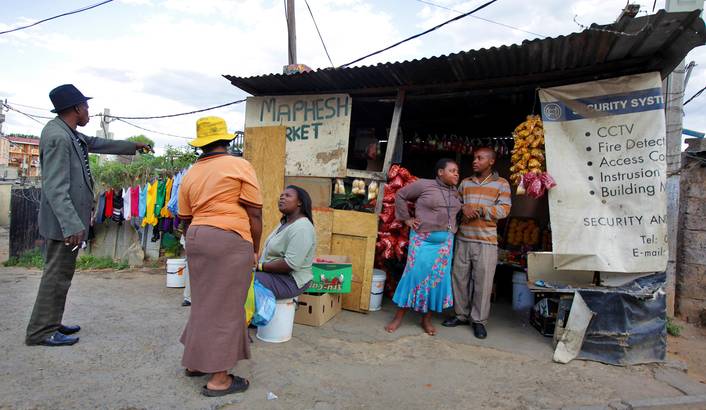News
The real frontline of the Chinese in Africa
Chinese traders are making an impact from Cape Town to Cape Verde. Beijing needs to pay closer attention to them. For better or worse, they are shaping China's reputation in Africa.

"Every day, we carry our hearts in our hands”. You hear this Chinese idiom across Africa; it means to live in fear. As one young man said recently: “Every week the police and immigration come and extort money from us, but the Chinese embassy does nothing, they just look down on us. Why do we have to live as if we are thieves?”
The speaker had lost his job in a factory in Fujian province and had travelled thousands of miles to work at a relative’s shop in Angola’s capital, Luanda. He is one of hundreds of thousands of Chinese migrants making a living as traders in Africa, selling everything from food to clothes to household gadgets.
Their stories belie two myths about China in Africa: that it’s all about commodities, and that China moves as one. They also illustrate why Beijing cannot afford to ignore the immigrants any longer. For over a decade the prevailing image of China’s presence in Africa has been of a monolith, as state-owned energy giants race in offering infrastructure in return for commodities. Now a more complex picture is emerging with different actors, driven by diverse aims and needs, creating new flashpoints for China-Africa relations.
Most Chinese traders arrived in Africa in the past 10 years after failing to find work in China’s hyper-competitive job market. The poorest and least educated of China’s diaspora, they have forged their own pathways in the continent through family and village networks. They do not care about geopolitics or that China’s trade with Africa exceeded $150bn in 2011. What matters is that the barriers to entering Africa’s market are low enough for them to compete, even with few skills, little capital and often no experience of trading.
When Chinese traders first set up shop in Africa’s urban marketplaces and rural outposts, they were seen as a boon to the many poor Africans who were previously unable to buy almost any manufactured product. But today as the most visible Chinese presence traders have become an easy scapegoat for politicians, merchants and labour unions worried by China’s presence.
They are accused of cheating Africans by not paying tax and refusing to use local suppliers; their products are derided as inferior or “Fong-Kong” merchandise. Botswana is one of only a few states to introduce legislation restricting their activities, but others will follow. And more regulation is needed. Chinese traders have done themselves no favours by failing to respect consumer rights – most won’t allow their products to be returned, even when they break – and cloaking their operations in secrecy.
Yet local firms would do well to learn from Chinese small businesses rather than join the backlash. Their comparative advantage lies in their capacity to endure hardship and sacrifices to succeed, even when profit margins are minimal.
Chinese traders also know that if they don’t make it in Africa, they have nowhere else to go. Nearly all plan to return to China eventually or resettle somewhere other than Africa, once they have earned enough money. The education is too poor for their children, the medical care too meagre. And they find African ways and values simply too alien. So they seal themselves off from the societies around them as best they can. The only way to prevent relations from worsening is for China to stop pretending that they don’t exist. Traders do not live in secure compounds and their legal status is often unclear. Since they are not employed by a state-owned firm, Chinese embassies will not intervene on their behalf or pressure African governments to do more to protect them. This may have to change. The most important drama in the China-Africa relationship is playing out on the African street, not in say the oilfields of South Sudan. It is here where most Africans encounter the Chinese presence in Africa and decide whether it is good or bad.
At the very least, they are growing more wary. Rising anti-Chinese sentiment could make life difficult for African governments, whose mining and infrastructure deals with China are central to their countries’ development. Resource-hungry Beijing can ill-afford further damage to the “China brand” in Africa.
Chinese traders are making an impact from Cape Town to Cape Verde. Beijing needs to pay closer attention to them. For better or worse, they are shaping China’s reputation in Africa.
This article was originally published in Financial Times.



